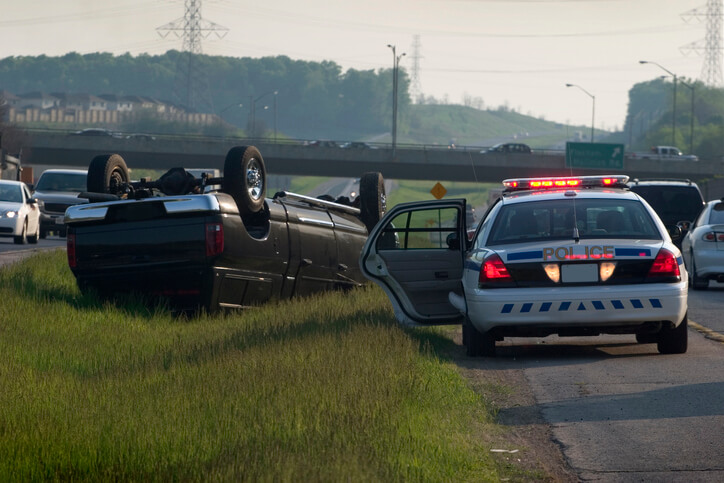Rollover accidents have a higher fatality rate than many other types of collisions. Thankfully, rollovers do not happen as often as fender benders. What happens to your body in a rollover accident will depend on several factors, including whether you were wearing a seat belt at the time of the impact.
If you got hurt or a close relative died from injuries received in a rollover crash, a New Jersey personal injury attorney could help you go after compensation from the at-fault party.
What Happens to Drivers and Passengers During a Rollover Collision
As the vehicle flips upside down and possibly right-side-up again, perhaps multiple times, the human body gets tossed around inside the car. With every change of direction, the body can make a forceful impact with the interior parts of the car. Often, these surfaces are hard and unyielding, like the ceiling of the vehicle.
If the car flips over in the forward and backward directions, people inside the vehicle can slam into the steering wheel, dashboard, front and back of the seats, ceiling, windshield, and frame of the car. When a car flips over sideways, occupants can collide with the doors, door frames, ceiling, and seats of the vehicle.
In either situation, people inside the car can careen into other occupants and debris flying through the air inside the car, like backpacks, purses, groceries, or whatever is inside the vehicle. People who do not wear seatbelts are often ejected from the car in a rollover collision. Their bodies can sustain severe injuries at four separate points:
- At the point of the initial collision and impact,
- When they got tossed around unrestrained by a seatbelt inside the vehicle
- As they got propelled through the windshield, window, or sunroof,
- If they struck anything else while airborne, like their own car, the other vehicle, a tree, or a building,
- When they landed on the street, sidewalk, or ground
A person who gets ejected from the car during a rollover crash has a high likelihood of catastrophic or fatal injuries.
Common Injuries from Rollover Accidents
The multiple impacts inherent in rollover collisions can cause head and brain trauma, neck injuries, spinal cord damage, fractures, internal injuries, deep lacerations, and amputations. Injured people who survive a rollover crash often face a lifetime of significant impairment, including paralysis, seizures, mobility challenges, and intellectual impairment from head trauma. Many have to use prosthetic devices due to the dismemberment they suffered.
Factors That Can Affect Safety and Injuries in Rollover Crashes
One of the best ways to survive a rollover collision is to wear a three-point seatbelt with a shoulder belt every time you drive or ride in a car. Doing so can hold you in place and protect you from striking the ceiling, dashboard, or other parts of the car. A seatbelt can also sharply reduce the chances of getting ejected from the vehicle.
Airbags can be a lifesaver in a rollover accident, so do not allow anyone to disable the airbags in your car. Rollover bars can maintain the structural integrity of the car so that the car does not crumble around you like a smashed soda can.
A New Jersey personal injury attorney can advocate for you if you got injured in a rollover collision. Call our office today to schedule a consultation

